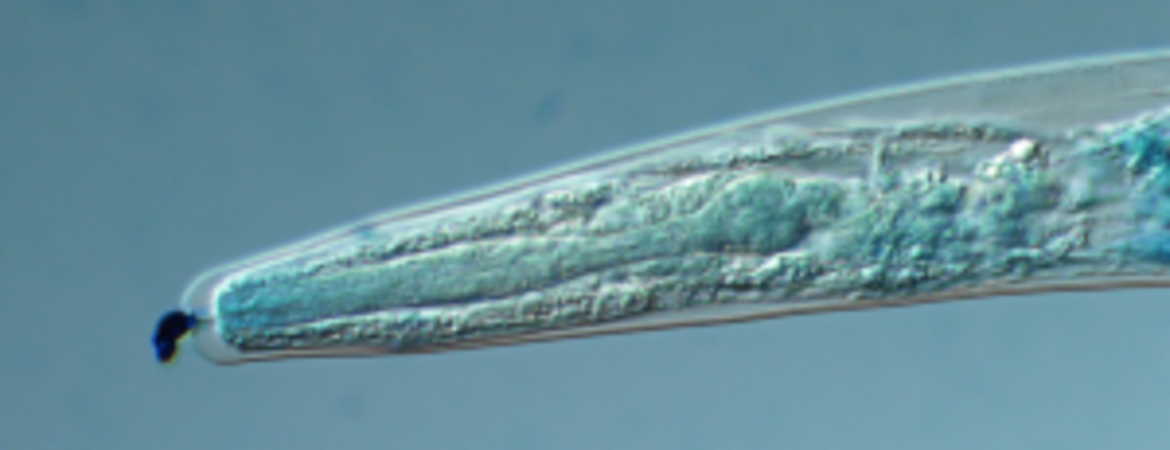
It’s likely that billions of people are unaware they have been infected with parasitic worms. A UC Riverside scientist has won $1.8 million to try and understand why.
The National Institutes of Health granted an Outstanding Investigator Award to Adler Dillman, an assistant professor of parasitology, so he can shed light on the mystery of worm infections that escape detection by human immune systems.
Unlike other grants, the Outstanding Investigator Award funds a research program rather than a specific project. This increases the flexibility for scientists to follow new research directions as opportunities arise instead of adhering to objectives proposed in advance of the studies. Spread out over five years, these funds will enable Dillman to hire a postdoctoral researcher, support graduate researchers, and purchase biochemistry equipment.
Recently, Dillman was also the recipient of a UCR Office of Research and Economic Development grant. For that project, Dillman is working toward a pesticide based on nematode venom, and on modifying crops to secrete a version of the toxin in the venom, which would give them natural resistance to insect attacks.
“Nematodes are devastating parasites of humans, capable of modulating our biology in numerous ways, including suppressing our immune systems,” Dillman said. “The goal of my lab is to understand this modulation and to characterize the chemical pathways that allow it to happen.”
Dillman said one of the things that most interests his students is the idea that parasites aren’t necessarily always bad. The hygiene hypothesis proposes that in places with highly developed sanitation systems, human immune systems don’t develop properly because they are not challenged by infection.
“There’s compelling data that parasites could even be used to treat autoimmune disorders such as Crohn’s or inflammatory bowel disease,” he said. “Parasitic worms are just the coolest things you could study because there are so many strange interactions, both positive and negative, that occur between the worms and their hosts.”
The complete news article by Jules Bernstein can be read in full at UCR News.
